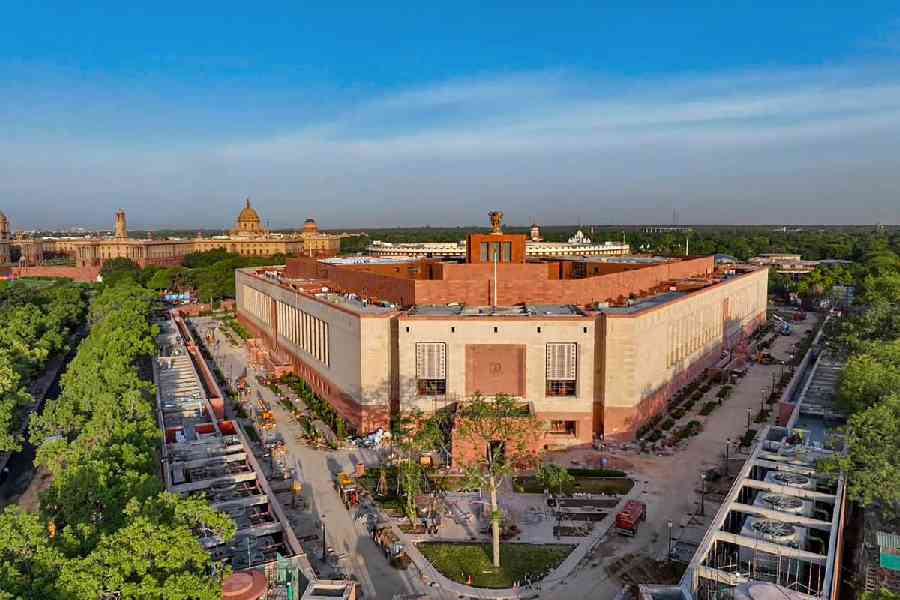Will Indian Ministers Take the Oath on the Bhagavad Gita? A Reflection on Tradition and Modernity

Will Indian Ministers Take the Oath on the Bhagavad Gita? A Reflection on Tradition and Modernity
New Delhi, July 11, 2024 — In light of recent events where Conservative MP Bob Blackman in the UK took the oath of allegiance to the Crown while holding the Bhagavad Gita, a pertinent question arises: Will Indian ministers embrace their cultural heritage by taking the oath of office on the Bhagavad Gita? This debate gains significance as India is the birthplace of this sacred text, and its influence on Indian philosophy, culture, and politics is profound.
The Tradition of Oath-Taking in India
In India, the tradition of taking an oath of office is deeply rooted in its Constitution. Article 60 of the Indian Constitution mandates the President to take an oath of office in the name of God or in the name of the Constitution. Similarly, ministers and MPs are required to take their oaths either in the name of God or affirm solemnly in the name of the Constitution of India.
Historically, the most common practice has been for ministers to take their oath on the Constitution, symbolizing their commitment to uphold the democratic principles enshrined in it. However, there is provision for taking the oath on religious texts, including the Bhagavad Gita.
Cultural Heritage and Modern Politics
The Bhagavad Gita, a 700-verse Hindu scripture, is considered a spiritual and philosophical guide. Its teachings have influenced countless individuals and leaders, including Mahatma Gandhi, who often referred to its lessons on duty, righteousness, and devotion.
Despite its profound impact, it is relatively rare for Indian ministers to take their oath on the Bhagavad Gita. This raises questions about the integration of cultural heritage and modern political practices. In a country that is the cradle of the Bhagavad Gita, should there be more visible acknowledgment of this sacred text in the political arena?
The Courage to Embrace Tradition
The act of taking an oath on the Bhagavad Gita would signify a minister’s personal conviction and commitment to the values espoused by this ancient text. It would also serve as a powerful statement of cultural pride and national heritage.
However, there are complexities involved. India is a secular nation with a diverse population encompassing multiple religions and beliefs. The choice of taking an oath on a specific religious text can be seen as both a personal declaration and a potential point of contention in a pluralistic society.
Moreover, the political landscape in India is characterized by diverse ideologies and the need to balance traditional values with modern democratic principles. Ministers may prefer to take the oath on the Constitution to emphasize their commitment to the secular framework of the nation.
Public and Political Response
The public response to ministers taking the oath on the Bhagavad Gita could be varied. For some, it would be a moment of pride, reflecting a deep connection to cultural roots. For others, it could raise concerns about the representation of religious diversity in a secular state.
Political parties, too, might have differing views. Parties with a strong emphasis on cultural nationalism may advocate for such practices, while those upholding strict secularism may caution against it.
A Potential Shift?
Given the global trend of politicians acknowledging their cultural and religious identities, as seen with Bob Blackman in the UK, Indian ministers might consider a similar approach. This could foster a greater sense of cultural pride and continuity while maintaining respect for the country’s secular ethos.
Conclusion
The question of whether Indian ministers will take the oath on the Bhagavad Gita touches upon broader themes of tradition, modernity, and national identity. While it remains to be seen if such a shift will occur, the discussion itself highlights the ongoing dialogue about the place of cultural heritage in the political sphere.
As India continues to evolve, the integration of its rich cultural legacy with contemporary governance practices will be a topic of significant interest and importance.